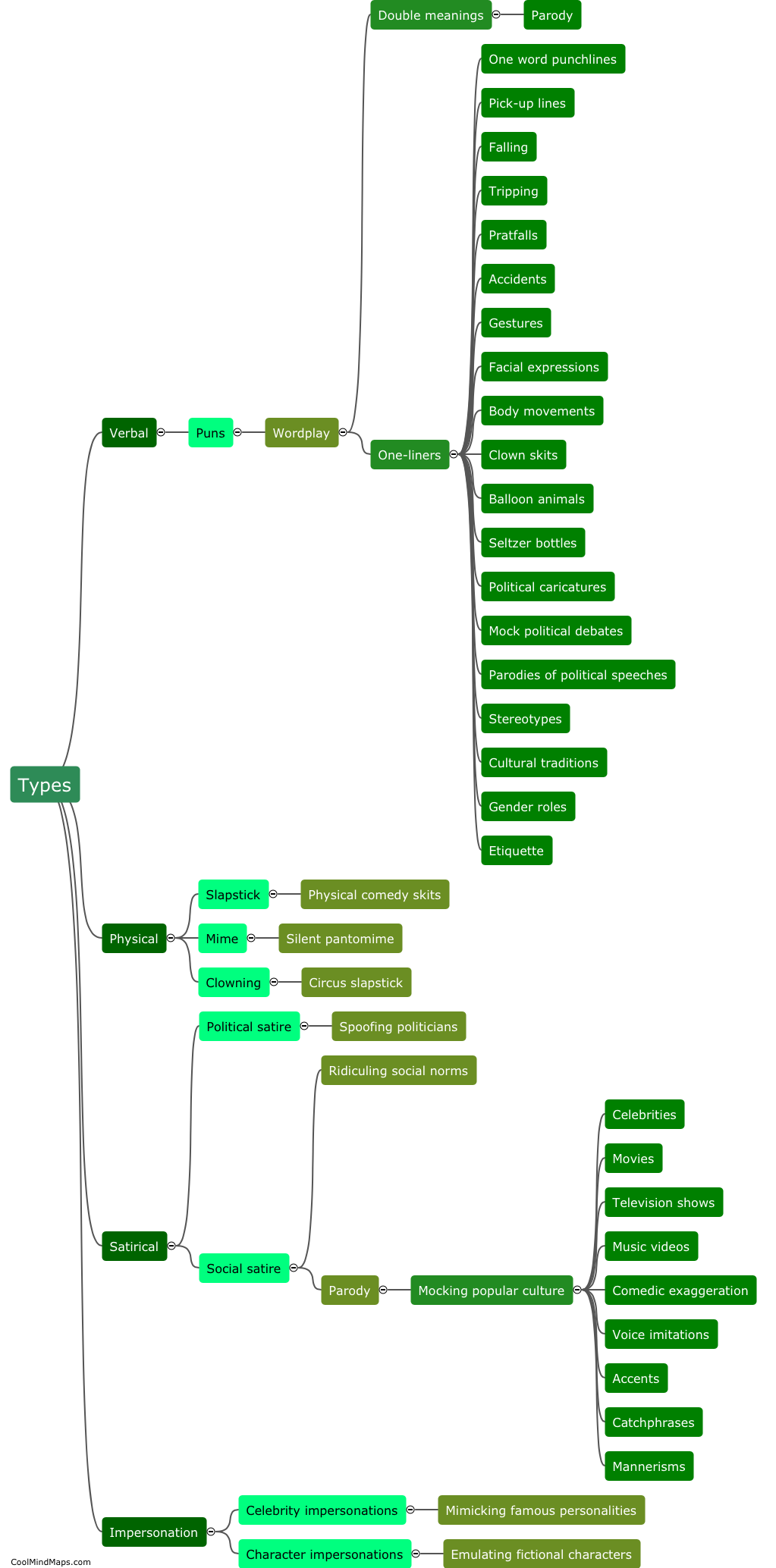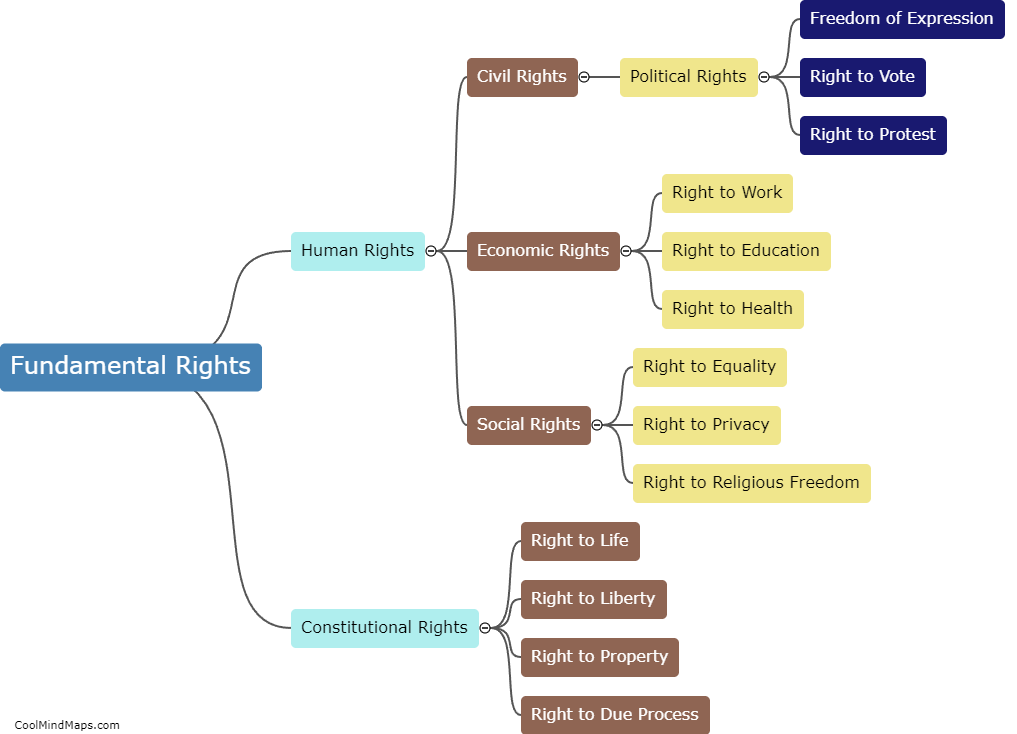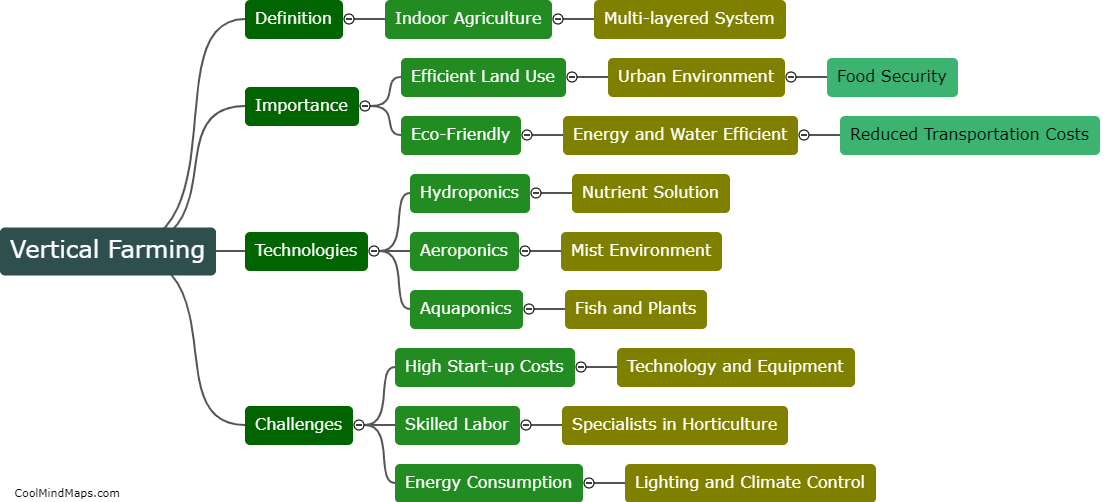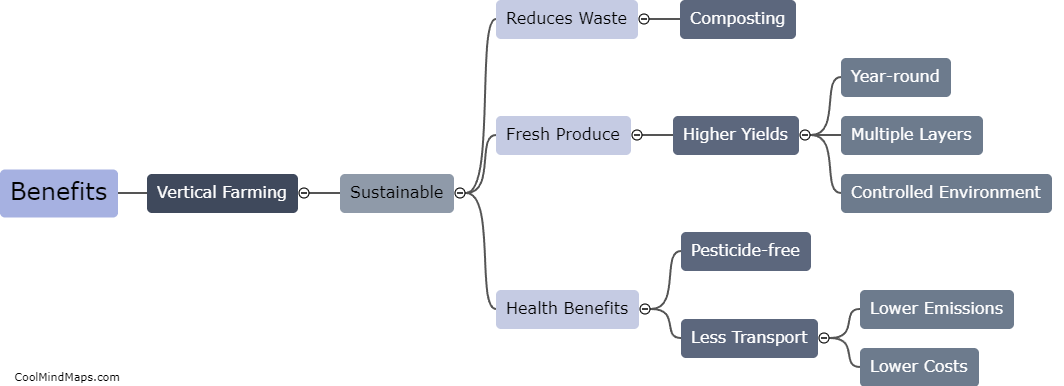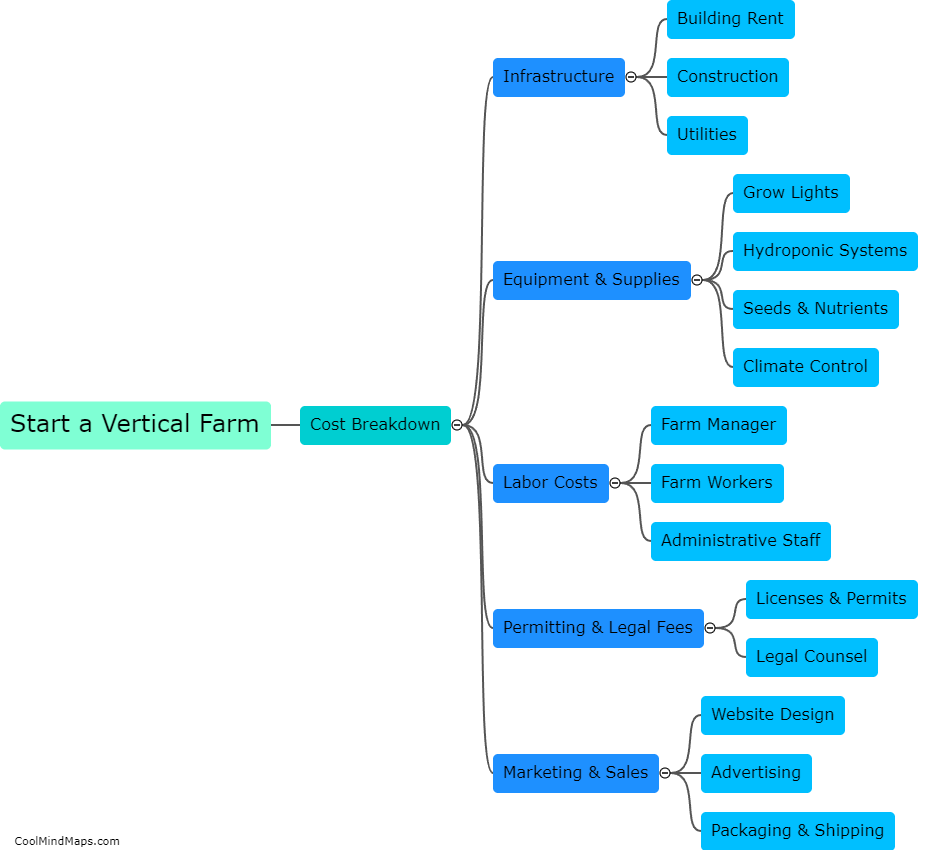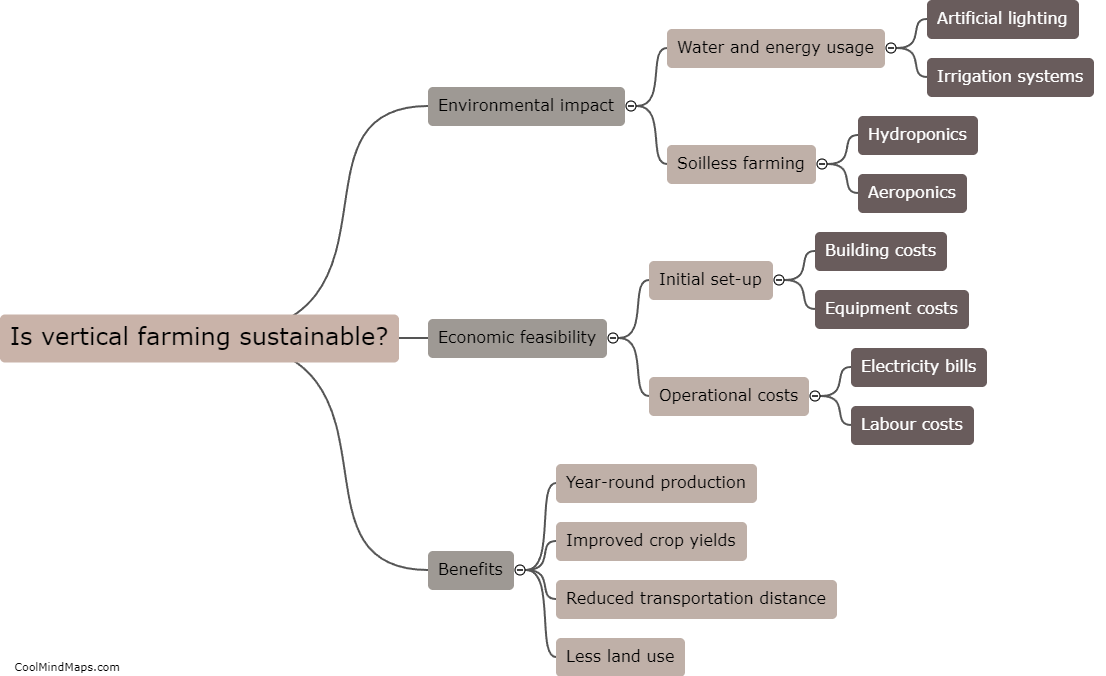What are the challenges of vertical farming?
Vertical farming is an emerging agricultural method that presents numerous benefits, such as increased crop yield, improved soil conservation, and efficient use of resources like water and energy. However, this technology also poses several challenges. One of the main challenges of vertical farming is the high initial capital investment required to set up the necessary infrastructure and technology. Additionally, vertical farms require a constant supply of resources such as water, electricity, and nutrient-rich soil, which can increase operational costs. Other challenges include the need for scalability, energy efficiency, and the ability to grow a diverse range of crops. Overcoming these challenges is crucial to ensure vertical farming is a viable solution for sustainable food production in the future.
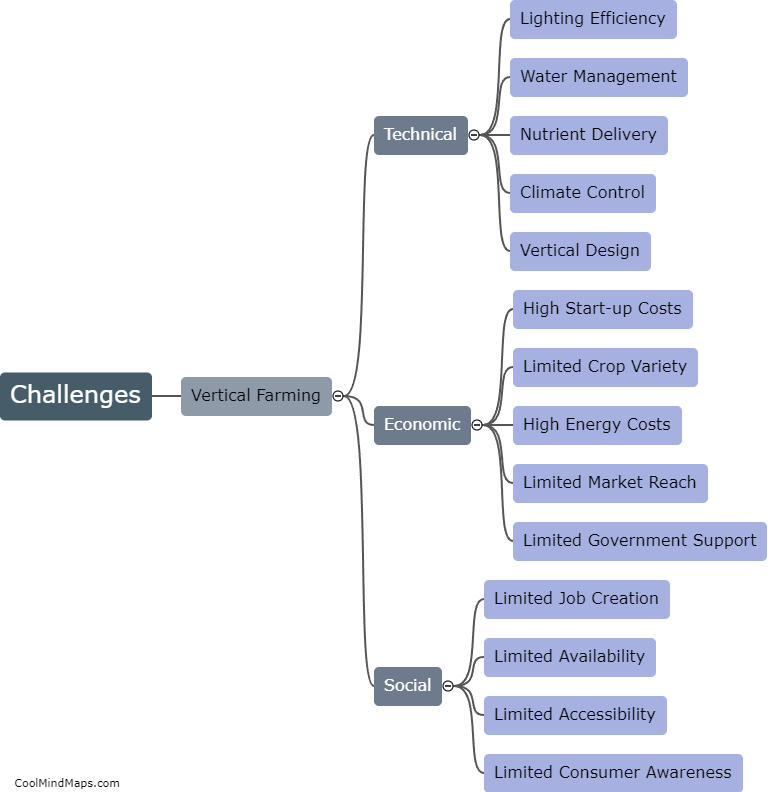
This mind map was published on 17 May 2023 and has been viewed 98 times.


